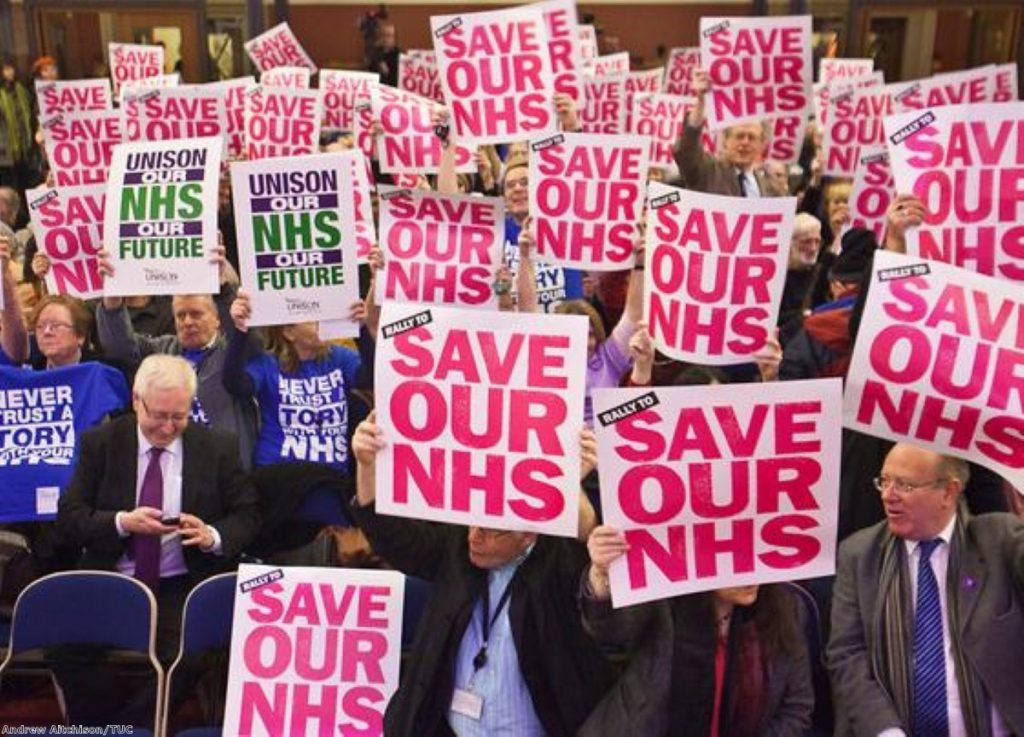Why doctors should stop hating politicians
MPs will never stop playing politics with the NHS – however much doctors want them to.
Having spent the early years of this parliament mounting a bitterly-fought campaign against the coalition's shakeup of the health service, the British Medical Association's latest offensive is now entirely anti-politics.
It's published research from Ipsos Mori revealing the public back doctors' view that MPs just can't be trusted to meddle with the NHS.
Two thousand British adults, carrying around all that emotional baggage of suspicion and distrust towards Westminster, have been laboriously questioned to make a fairly unsubtle point: that ministers should back off.


Two in three voters think the NHS should manage itself without the involvement of any politicians at all. Only a third of people think parliament should set targets for the NHS. Nearly three-quarters believe political parties are putting together NHS policies with the primary goal of winning votes, not improving healthcare.
These are odd views to take because they make no internal sense at all.
The NHS is a fundamentally political creation. It is, arguably, the greatest achievement of the Labour party. It is one of British society's most distinctive national innovations. And, most compellingly of all, it costs a lot of money. As it's taxpayers who are footing the bill, the NHS is inherently political. So you can't blame politicians for getting involved in it, or for legislating on finding ways to improve it via targets.
The BMA's beef is understandable because continuity of healthcare doesn't sit very well with doctors' main complaint about MPs: their tendency to meddle. Their strength of feeling, given the extraordinary about-turn performed by the coalition, is understandable enough.
"The government promised to remove micromanagement from the NHS and yet the opposite has happened," declares Dr Mark Porter, the BMA's current chief.
"There are even claims that NHS England, set up to be independent of Whitehall, is being manipulated for political purposes.
"Now, a year out from the next election, we're already seeing politicians lining up politically motivated, not clinically driven changes to GP services."
Apparently something which seems painfully obvious in Westminster is not so clear in BMA House. MPs need to win votes to win power. So Labour preys on fears about the Tories scrapping the NHS, and the Tories strive to reverse Labour's tendencies of throwing money at the project.
Porter understands this, sort of. Which is why his actual policy demands – a general cooling-off period, please – are not as extreme as the polling questions suggest.
"Doctors want to see politics taken out of the NHS once and for all. It is clear that the public feel the same way," he moans.
"Yes, politicians should be accountable for the running of the NHS, but when it comes to decisions on patient care it is time to allow doctors to do what they do best – lead the delivery of high-quality patient care."
And yet this, too, is an odd sort of distinction. Managing the NHS is about more than just administering the distribution of paperclips. These decisions are about basic issues of public versus private, the state versus the individual, helping the rich or helping the poor. From the fight against obesity to life expectancy rates, the nation's health is always going to be political.

